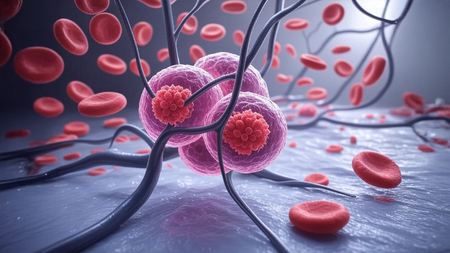New Delhi, 4 July (IANS). A US research team has discovered such genetic changes that increase the risk of cancer in humans. Due to this change, our body’s defense system weakens, which causes cancer to increase. This discovery is extremely important because this will help scientists to develop new and effective treatment of cancer.
Researchers at the University of California Davis have discovered that some immune cells (diseases fighting diseases) are not as effective in fighting solid tumors (lump cancer) as the other non-humans of the other non-humans (eg chimpanzies).
A research published in the magazine of Nature Communications revealed that there is a small genetic difference between animals like humans and monkeys. This difference occurs in an immune protein called Fas Ligand (FAS-L). Explain that this protein occurs in the cells protecting our body and helps in fighting cancer. Humans are less effective against cancer due to this small difference.
In this genetic change, an enzyme ‘FAS-L’, called Plasmine, damages the protein, causing weakness.
Jogendra Tushir Singh, Associate Professor in the Department of Medical Microbiology and Immunology, said, “The change of” FAS-L ‘enhances the mind of humans to think and understand the minds of the brain, but it has proved to be harmful in terms of cancer. Due to this change some tumors weaken our defense system, which reduces our body’s strength.
The UC Davis team found that there has been a special change on a small part of ‘FAS-L’ protein in humans’ genes. Here, Cereen has replaced an amino acid propel in protein. Due to this small change, ‘FAS-L’ is easily cut more than an enzyme called protein plasmin and stops working. Therefore, ‘FAS-L’ weakens and the immune system is unable to function properly.
Plasmine is a special enzyme, called protease enzyme. It helps enzyme tumors and can make cancer more dangerous.
Tushir-Singh said, “Humans have a much higher cancer rate than chimpanzees and other primates. There is a lot that we do not know and still can learn from primates and can apply it to improve human cancer immunotherapy.”
-IANS
PK/AS
